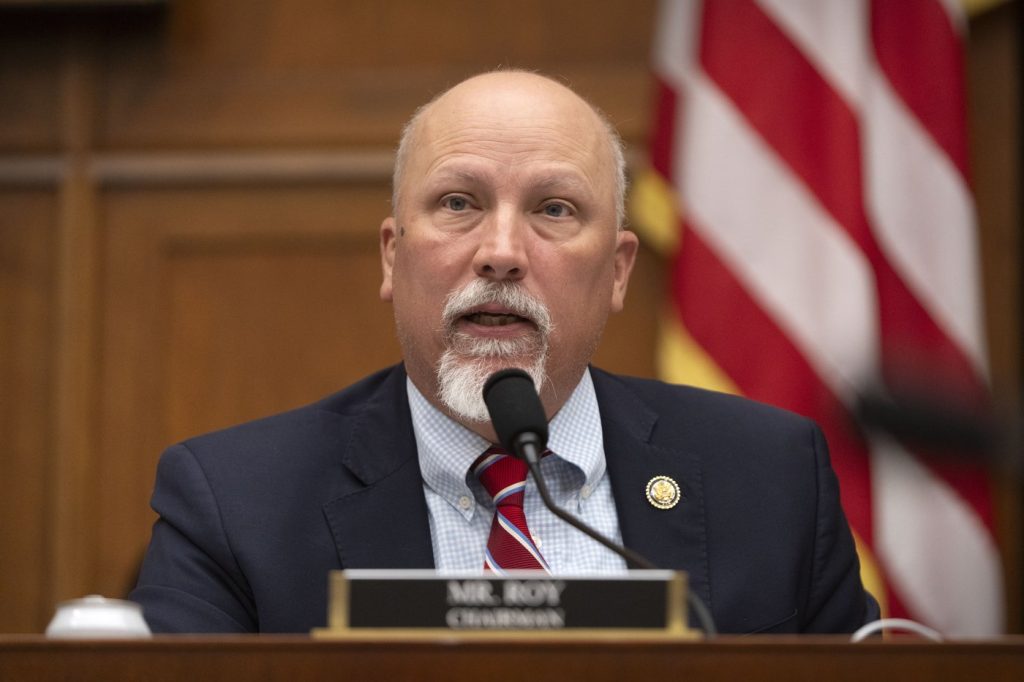ATLANTA (AP) - The U.S. House has passed the Safeguard American Voter Eligibility Act, also known as the SAVE Act, which mandates documentary proof of U.S. citizenship for individuals registering to vote. This requirement has raised alarms among voting rights groups, who warn that it could disenfranchise millions of eligible voters.
This legislative measure is a top priority for President Donald Trump and House Republicans, who argue that it is essential to eliminate the very rare instances of noncitizen voting. Critics, including various state cases, emphasize that such occurrences are typically accidental rather than a coordinated effort to undermine electoral integrity. Notably, federal law already prohibits noncitizens from voting, and violations can lead to severe penalties, including felony charges and deportation.
The SAVE Act now moves to the Senate, where its prospects remain uncertain due to the lack of a significant Republican majority to overcome potential filibusters. If enacted, the legislation would take effect immediately and require all voter registration applications to present proof of citizenship.
Proponents of the bill, such as Republican Representative Bryan Steil of Wisconsin, argue that current voters are not impacted directly. However, voting rights advocates assert that the legislation would affect registered voters when they move, change their name, or update their registration information. Acknowledging this concern, chip Roy, the bill’s author from Texas, indicated that those needing alterations would have to provide proof of citizenship to remain eligible to vote.
As for documentation, the SAVE Act specifies that states must reject any voter registration applications lacking documentary proof of U.S. citizenship. Acceptable documents include a REAL ID-compliant driver's license, a valid U.S. passport, a military ID card that indicates a birthplace in the U.S., or a combination of a government-issued photo ID with a certified birth certificate showing U.S. citizenship. However, many driver's licenses do not list a birthplace or indicate citizenship, creating potential barriers for applicants.
This requirement could disproportionately impact individuals who cannot easily access their birth certificates or who lack a U.S. passport. Women could face additional challenges if there is a discrepancy between their birth certificates and current ID due to name changes after marriage. The bill includes provisions for states to create processes for accepting supplemental documents like marriage certificates to establish name changes; however, there are calls for clearer guidelines to avoid discrepancies across states.
Another significant concern arises around the submission process for these documents. The legislation mandates that applicants who register by mail must submit proof of citizenship in person at their local election office. This requirement could pose a significant hurdle, particularly for individuals in rural areas who might have to travel long distances to verify their status. Additionally, states that permit same-day voter registration would require individuals to present proof of citizenship by election day, possibly creating further complications.
Republicans emphasize that any instance of noncitizen voting undermines confidence in U.S. elections, regardless of how rare it might be. In contrast, Democrats argue that illegal voting is already a punishable offense, and efforts would be better focused on ensuring states can effectively identify and remove noncitizens from voter lists rather than requiring all voters to prove their citizenship in advance. Considering recent findings from Michigan, where only 15 individuals appeared to have voted illegally among over 5.7 million ballots cast, Democrats reiterate that the far-reaching implications of the SAVE Act can hinder the voting rights of numerous eligible citizens.










